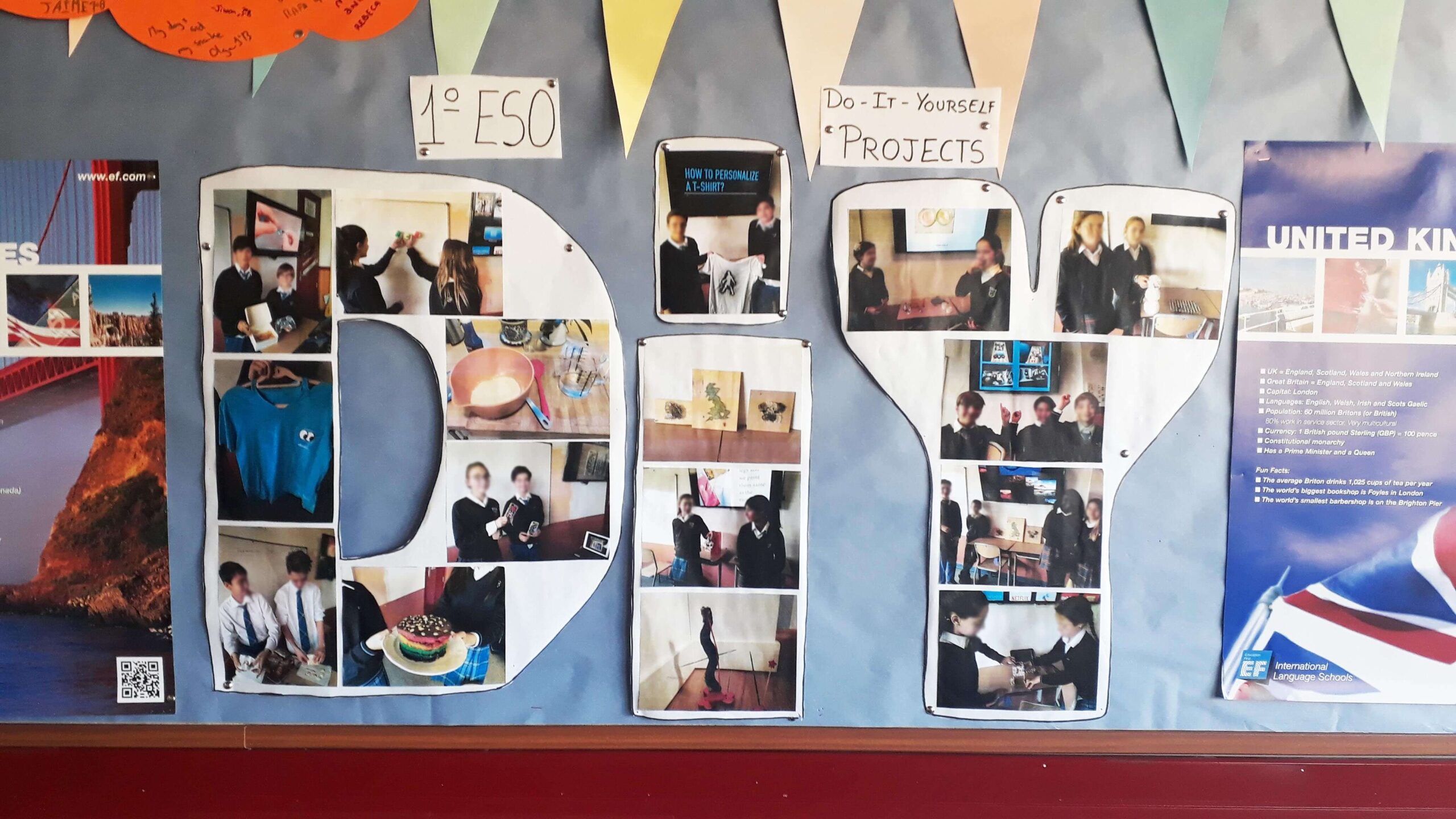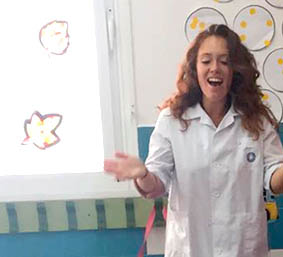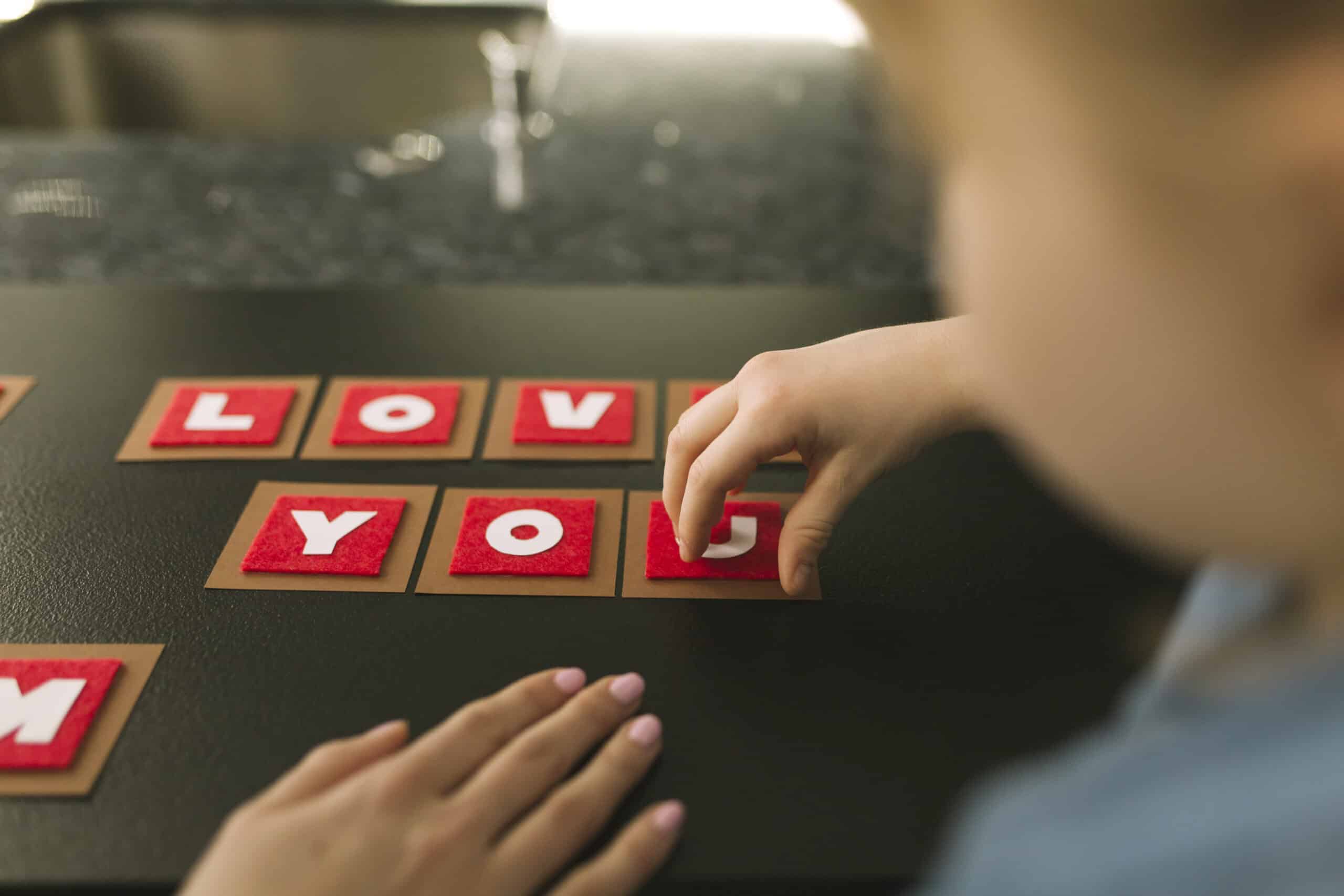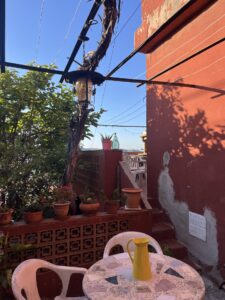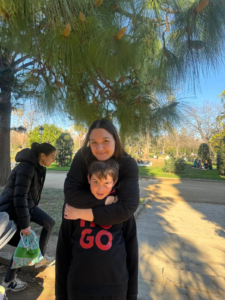The lucky ones who have been accepted into Meddeas Language Assistant Programs have the option to live independently in Spain. Meddeas gives you some basic tips on how to go house hunting in Spain, but in the end, you are responsible for finding your own accommodation.
Faced with this scenario, you might feel a bit worried. How do you start looking for an apartment in a foreign country? Should you start your search online or on the ground, once you arrive in Spain? What if you end up in a horrible place?
However, finding accommodation in Spain should not stress you out! I managed to do it, and it was not as difficult as it seemed. Here I will tell you about the Spanish flat in which I currently live, and I will give you some tips that you should consider before start house hunting.

My Spanish Piso
First, what is a piso? This is just the Spanish word for an apartment. When you start looking for accommodation in Spain, it is likely that you will end up living in a flat. Living in a house, such as those big houses in the countryside, is not something common. Later I will describe how my piso looks like, but bear in mind that is not a good example of the typical places in which Spaniards live.
After doing my research, I ended up with a Spanish-speaking housemate who speaks English fairly well. She rents two rooms in her house, but the other one is unoccupied, mostly due to the remote location.
This is something you should think about before you start looking: would you like to share an apartment with native Spanish speakers, or would you prefer to live with other Language Assistants, with whom you can share the Meddeas experience? In my case, I chose for the former.
Once I arrived to Spain, I was fortunate enough to have my housemate pick me up from my AirBnB, and drive me to my new home. My suitcases got stuck in transit and it arrived at my AirBnB two days after I left. Thankfully, my AirBnB host was amazing and dropped them off at my new place. It was a nice, warm welcome into the village and things haven’t changed much since.
My Beautiful Bedroom in the Mountains
I was very pleased with what I found when I arrived. In short, I have a furnished bedroom that overlooks the mountain and the grazing field, my own bathroom, front and back gardens, and a living area that has a fireplace. All utilities are included, and I have access to Netflix, Amazon Prime, and really great WiFi.
Of course, these magnificent facilities are largely due to the fact that I live in a large house in the mountains. This is not usual in Spain. Most people live in smaller apartments, inside a building, especially if they live in big cities.
Utilities and Common Expenses
However, there are certain common aspects that you should pay attention to when you are looking for accommodation in Spain, regardless of where you live. I am referring to common expenses, electricity and water, and necessary appliances such as having a washing machine, a microwave or a vacuum cleaner, in case you need them.
In my case, the cleaning detergents are included in the rent, and in terms of cleaning I am only responsible for my room, bathroom, and cleaning up after myself in the kitchen (obviously). There are a washing machine and a space where only I hang my laundry to dry. My bedroom came with bedding, towels, curtains, hangers, an iron, and a space heater.
These may seem silly but when you’re starting out, the little things add up and this made my life so much easier. I could literally unpack my suitcases and start school.
My Commutes and I
My school is about an hour’s bus ride from the centre of Madrid. I wasn’t willing to commute for two hours every day, depending on traffic and weather conditions. In addition, the buses are infrequent in the school’s area so waiting times are long. There is a bus every hour after nine o’clock.

I don’t like long commutes, so I decided to live close to the school. My daily commute to my closest bus stop is short. There is a bus every 20 minutes between seven o’clock and nine o’clock and it takes 15 minutes to get to school which includes the walk from the bus stop where I get off to the school.
Unfortunately, walking is not an option because there are no pavements and walkways between my village and the next, so it isn’t safe.
Another consideration for me was that I am above the age where you pay €20 for a monthly travel pass. This means that my travel pass would be €90 per month if I lived more central, and that is a high fixed percentage of my stipend that I wasn’t willing to part with.
Once I have told you about my experience looking for accommodation in Spain, what the house I live in is like, and the importance I give to commuting, I want to give you some general advice. Regardless of your situation and where you live, I think these tips will be useful.
General Tips on House Hunting in Spain
These are my general tips on how to find accommodation in Spain, but they are also good life practices that you can apply to other aspects of your life.
1. Make Sure You Have enough Time
This will let you view a lot of places and the financial means so that you do not take the first thing that is available. You want to give yourself space to look around and not feel pressured into decisions. You always want to get a sense of what is available and what “normal” looks like. That said, give yourself a time limit. You need an address to finalise legal requirements, so don’t be overly pedantic and scared to make a decision. Be decisive. You are renting a place for nine months, not committing to a lifelong relationship.
2. Check Your School’s Location
The first step in finding a place is to know where your school is located and what public transport options are available. It is important to check the bus schedule as well. If your school is on a metro route, then this is important as metros are frequent and the journeys tend to be shorter though peak hours may be a less than ideal time to commute. That said, decide how long you’re willing to commute daily.
3. Be Prepared to Compromise and Negotiate
Few things will prepare you for finding suitable accommodation in Spain at an affordable price when all the Language Assistants descend upon Madrid and are looking for the same thing as you are.
Madrid is a major city, has its fair share of gentrification, and the rent reflects that reality. Be prepared to compromise and negotiate, it may be awkward if you have limited Spanish, but it is doable (with a lot of patience).
4. Know Your Non-Negotiables
Know what you’re willing to pay, and what non-negotiables you have when looking. This includes the number of housemates, kitchen and living spaces, which utilities are included, etc., These, are all important. Also, ask what the rules are about visitors, sleepovers, quiet time, and how the place is cleaned and maintained.
I had an upper budget limit set before I started looking. But I also researched a lot of places in the area and was realistic about my budget range. My criteria were very specific: two housemates (one or both had to be Spanish-speaking), a garden, fully furnished and utilities included in the rent. I’ve rented before so I knew what I was comfortable compromising on, and what were non-negotiables.
5. Be Sure that You Understand the Terms of Your Contract
Some important elements are the deposit amount and under what conditions it will be returned to you, when rent is due, when you have to give notice, and the time period for notice to be given to you. Remember to always read the full document and don’t hesitate to ask for help if you don’t understand something.
6. Sign a Contract and Get a Copy
This is basic. The copy that you take with you should have both your and your landlord’s signature. Make sure you have copies of their identity documents, as you may need it at the end of your contract, when you finish your stay in Spain.
7. Whenever You Make a Payment, Get a Receipt
This is important for legal purposes, besides being just a good life practice. You may need to justify a payment at some point. Or perhaps a payment is not properly recorded in the computer and you may find it useful to have the receipt. And when I say receipt, I mean both a digital and a paper one.
8. Make Copies of Everything
Everything. Scan it and keep it online. Or save it to an external memory. Try not to delete documents hastily or prematurely. You may need them at some point, even if it doesn’t seem like it now.
9. Speak
If something bothers you, speak about it, and don’t let it fester. The Spanish are mostly direct and you can save yourself a lot of overthinking if you just address the issue. Also, most Spaniards are very friendly, cheerful and relaxed. Don’t be afraid to talk to them if something bothers you. Chances are they will respond with a smile and a, “Okay!”
These are just some of the tips I found useful during my search for accommodation in Spain and my first days in this wonderful country.If you want some previous background on Spanish culture and what to expect once you arrive, I would encourage you to read my post on 6 Tips for Living in Spain. I hope you find it useful!I wish you the best of luck and enjoyment in this unforgettable experience!

